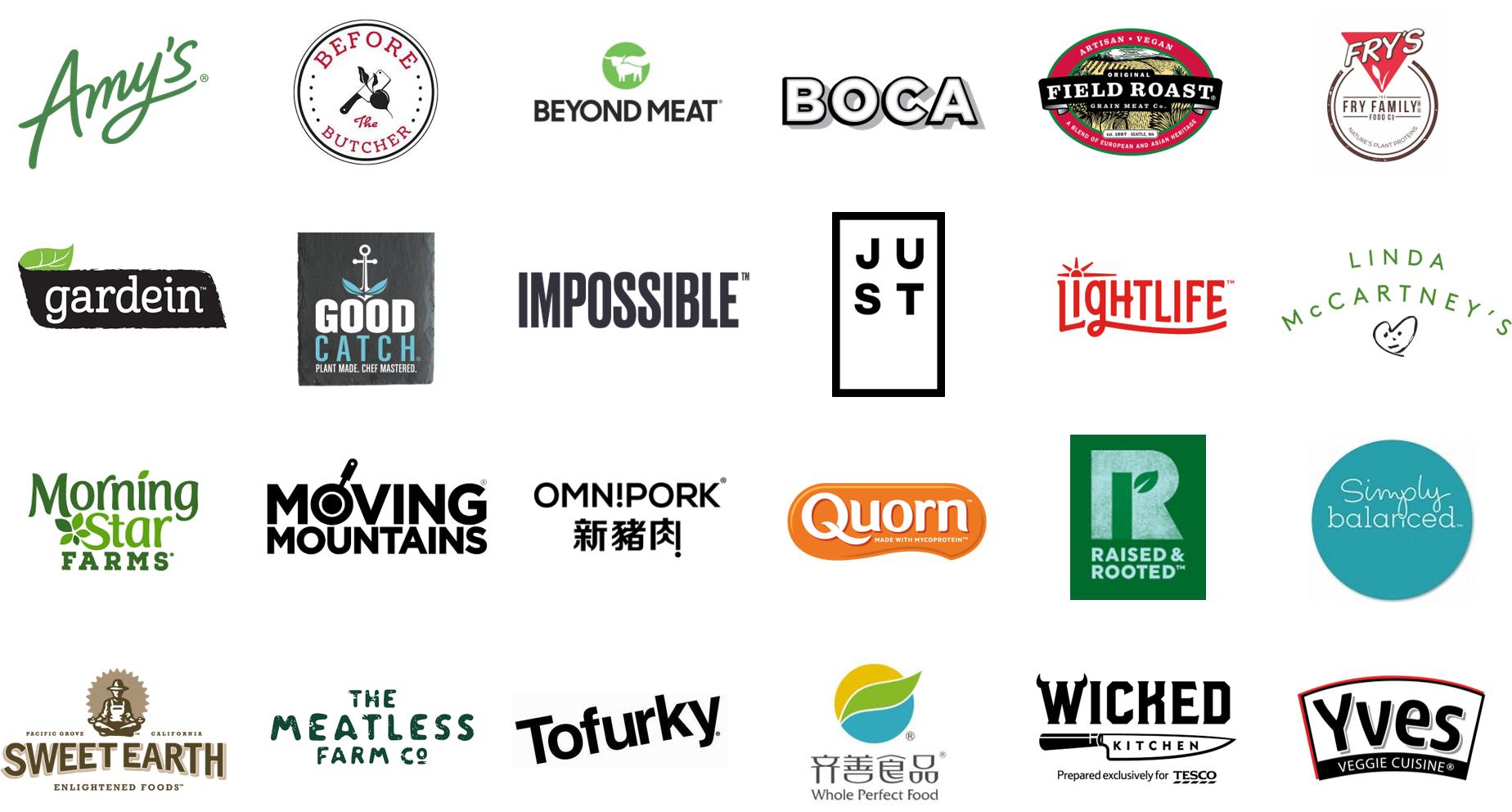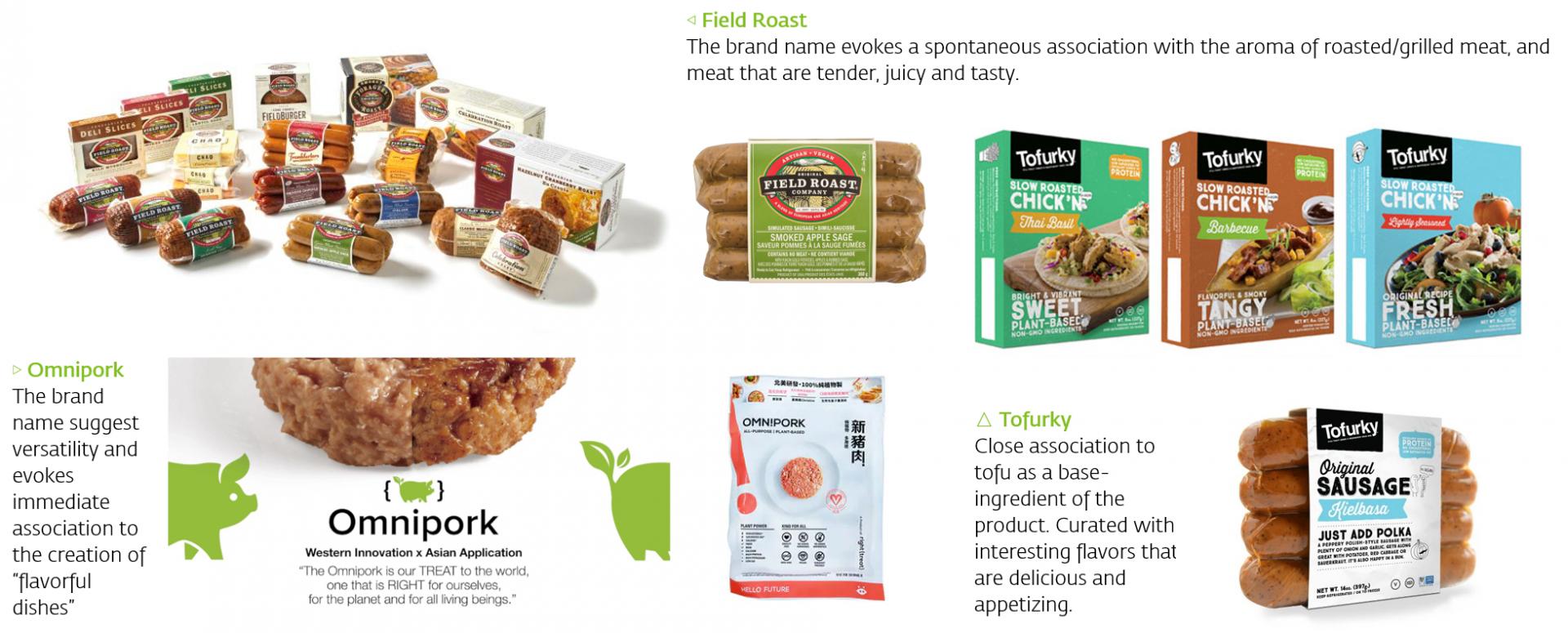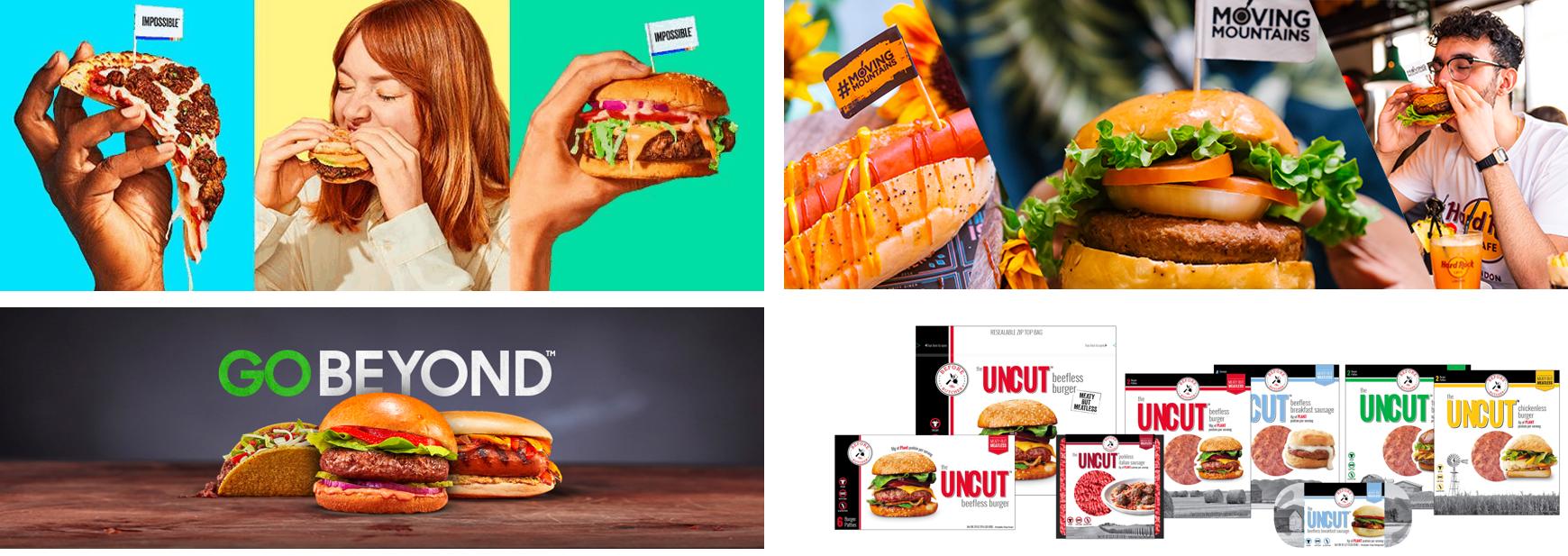

In 2020, “plant-based” is observed to be one of the top food trends that are shaping transformative dietary changes globally. When considering brand naming strategies, it’s crucial to adapt to evolving consumer preferences. Unlike “vegan” that requires complete avoidance of animal products in all forms, the “plant-based” proposition has been an easier sell to consumers as an extension of one’s diet to consume more food products made of vegetables and make occasional swaps to meatless products.
The increasing popularity of plant-based products, especially plant-based meat, can be attributed largely to its positive contribution to consumers’ health and the environment, demonstrating the importance of effective brand naming strategies. Research has shown that eating lesser meat contributes positively to addressing climate change issues with the reduction of carbon dioxide emission from livestock agriculture. Hence, brands within the category, from new players such as Beyond Meat and Impossible Foods, to long-time players like MorningStar Farms or Quorn, have been actively promoting environmental sustainability in their brand purpose and communication, showcasing the significance of brand naming strategies in conveying such messages.
(See Labbrand’s work with Quorn)
Interestingly, this proposition is largely unseen within their brand name – the gateway and carrier of all brand equity. Why is this the case? And what are brands focusing on instead? Here are three main insights and observations.

A key evaluation aspect of brand name testing and selection is its level of appeal. For food brands, its attractiveness is highly associated with how it evokes an umami tasting experience to the consumers. Being a relatively new product category, consumers are naturally curious about the tastiness of “plant-based” products. Hence, brands within the category will usually avoid direct reference of “meatless” or “meat-free” in their brand name to avoid the negative connotation of the lack of taste. Instead, brands are observed to use words that evoke a sensorial experience such as Field Roast, Omnipork or Tofurky. The mention of the ingredient and/or the food preparation method not only bridge category relevance, but also enable consumers to make a direct inference of what the brand is about, and how it can be integrated into their diet.

As the objective of a brand name is for consumers to easily identify and differentiate your brand from others, they need to grasp the proposition/benefit that the brand is advocating effortlessly. Though “environmental sustainability” is the idea that is fundamental to the purpose of most plant-based meat brands, it is too farfetched and impersonal for some consumers as they are unable to see tangible results from their effort.
Hence, what some brands within the category have chosen to do is to communicate the “better for you” benefit and to provide a direct link to the vigor of one’s health through their brand name (for example: Lightlife, Simply Balanced, Whole Perfect). Through such names, brands make it easier for consumers to visualize the impact of their dietary changes to plant-based products, and thereby increase their receptivity towards it.

In addition to being appealing and relevant to consumers/industry, brand names also need to be distinctive and memorable to capture consumer’s attention at a glance and aid in bridging brand recall. To be differentiated from existing brands in the markets, new entrant brands are observed to have named themselves with an element of surprise and potentiality.
Impossible Food and Moving Mountains are two great examples. Through the combination of ironic words, the brands illustrate the paradoxical trait of being a plant-based meat substitute in their brand names to spark curiosity and generate interest among consumers.

Other examples include Beyond Meat and Before the Butcher. The verbal identity of these brands is anchored on the advancement of technology to create radical plant-based meat products that look and taste like real meat. Capitalizing on the idea of moving on to the future/something unknown, these brands draw consumers in with the use of words to suggest new/endless possibilities in their brand names.
When it comes to your brand’s name, understanding brand naming strategies is essential. As mentioned earlier, even among plant-based meat brands, there’s room to convey the idea of environmental sustainability through your brand name. Brands like Sweet Earth and Good Catch have adopted this approach to align their names with their vision and mission. However, it’s important to note that while this is forward-thinking, it can be challenging since the market may not be fully ready for such ambitious branding in the food and beverage sector.
Your brand name is a fundamental part of your brand’s identity. Incorporating aspirational elements into your brand’s identity can reinforce its purpose and demonstrate its commitment to a cause. It’s also important to consider factors such as current market conditions and market readiness. After all, your brand name is not just an intellectual property asset; it’s the verbal identity by which consumers will recognize your brand. Choosing the right brand naming strategies can have a significant impact on your brand’s success.
A Labbrand Group Company © 2005-2024 Labbrand All rights reserved
沪ICP备17001253号-3* Will be used in accordance with our Privacy Policy
To improve your experience, we use cookies to provide social media features, offer you content that targets your particular interests, and analyse the performance of our advertising campaigns. By clicking on “Accept” you consent to all cookies. You also have the option to click “Reject” to limit the use of certain types of cookies. Please be aware that rejecting cookies may affect your website browsing experience and limit the use of some personalised features.